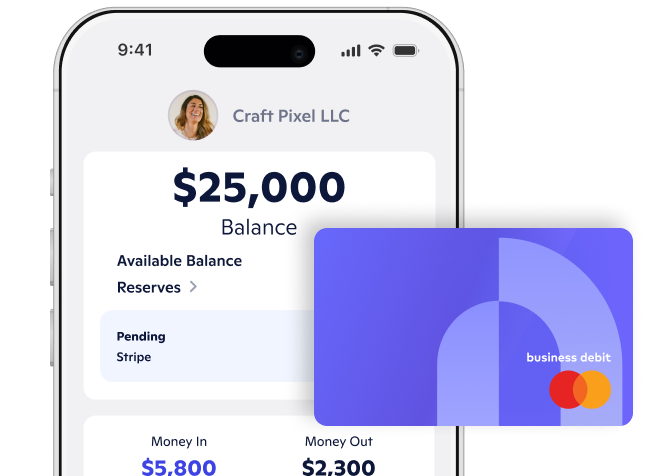7 Questions to Ask Your Attorney Before Starting a Small Business

eciding to start a small business can be an exciting time in your life. If you do choose to take the plunge, we encourage you to do your research and make sure you've got all your bases covered from a legal standpoint. Here's what you should ask your attorney as you start your small business. Approximately 50% of small businesses will survive for five or more years, suggesting that you have a good chance of creating something with lasting power. More importantly, there is no telling how much joy running a company will bring to your life. Plus, there's a real possibility that you'll never have to work a 9-to-5 job under someone else if you launch your own business. You do not need to hire a lawyer to start a business, but it can be helpful to do so. Someone in the legal field can provide you with the necessary tools and guidance to bring your entrepreneurial goals into fruition. Read on to learn seven key things that you should ask your attorney before launching your startup, small business, or freelancing empire.
Ask your Attorney these 7 Essential Questions
1. What Do I Need to Get Started With My Small Business?
There is some groundwork you need to do before learning the legalities of launching a small business. Most businesses start with three or four main elements: an idea, a business plan, financial backing, and proper legal representation (optional).

Let's break these down:
- Idea: This element defines how you're going to connect with customers to bring in revenue.
- Business Plan: A business plan defines what you plan to do and how you plan to do it. It is a formal document that details your goals, the methods you will use to reach these goals, and the timeframes for achieving them.
- Financial Backing: Everyone knows you need to spend money to make money. Knowing how you're going to fund your expenses is an integral element of running a business.
- Legal Representation: It helps to have an attorney or legal expert on board to help you avoid common business pitfalls.
Once you've figured out these four elements for your small business, you're moving in the right direction.
2. What Do I Need to Know About My Industry?
This question goes hand in hand with the first one. If you're looking to fill a gap in a particular industry, it's essential to study up on your industry. Talk to your attorney to learn the laws, regulations, and policies that pertain to that market. It's also crucial to look into what permits and licenses you need to make sure you are complying with these legalities. In an ideal world, your attorney is an expert in commercial law who knows all about your industry. But even if they aren't, their legal training puts them in a prime position to help you navigate through the paperwork of these permits and licenses. We know you’re interested in running a business, and this process may seem dull to you. But this is exactly why bringing an attorney into the mix can be so essential. They can take these burdens off your plate, allowing you to follow your passion and create a positive impact on the world.
3. What Do I Need to Know When Choosing a Name?
You may already have an idea of what you want to name your business, but there are multiple factors to consider here. Laws vary from state to state, and depending on where you are, your business name may infringe on another name. Ask your attorney to learn the laws of the state you register your business name at to avoid this. If you do decide to trademark your business name, choose a name that meets the criteria for trademark protection. Again, this is something your lawyer can help you with.
4. How Do I Protect My Intellectual Property?
This question is connected to #3. You want to protect your ideas, technologies, and secrets, which are all part of your intellectual property. The most common ways to protect your intellectual property are with a copyright, trademark, or patent. There are some key differences between these three items. Copyrights often protect creative works, making it ideal for musicians or artists. A trademark protects a brand name or logo from being used in specific ways. Meanwhile, patents protect inventions and products. Your attorney can look at the type of business you have and help you decide if you should patent, trademark, or copyright your intellectual property.
5. What Business Structure Do I Need?
If this is your first time starting a company, it may not be immediately obvious what the right business structure for you is. Different structures apply to different types of businesses and goals. Let's look at some of the most common business structures:
- Sole Proprietorship: In this type of business, you are the sole owner. You are entitled to all the profits, and you are responsible for all your company’s debts, liabilities, and losses. A sole proprietorship is a common business model for freelancers.
- General Partnership: This one is the same as a sole proprietorship, but with two or more individuals as owners. Any partner can be held legally responsible for liabilities in this case.
- C-Corporation: With a C-corp, the owners are separate from the business, limiting their liability. They include a group of shareholders who each own a piece of the company.
- Limited Liability Company (LLC): An LLC is a hybrid between a sole proprietorship and a C-corp. Owners don't risk their personal assets if the business fails to meet its financial obligations. How much they've invested in the company affects how much they accrue in losses.
- Limited Partnership (LP): A partnership in which a general partner oversees funding and investing partners. These partners can enjoy the cash flow of the partnership, but are not liable for company obligations.
- Non-Profit Organization: An entity that does not bring in profit. Instead, it promotes a social cause and provides a benefit to the public.
It's worth noting that there are different tax laws for each of these types of companies. Plus, there are both federal laws and state ones you will need to take into account when filing your taxes.
6. What Are My Organization's Bylaws?
An experienced lawyer can help you figure out your company's bylaws. This process can be a tedious one, but an important one. Bylaws add structure to how you and the management staff run the business. Some of the most common items included in an organization's bylaws include:
- Rules for company meetings: How frequently should we have meetings? What laws do these meetings follow? What type of notice should employees get for these meetings?
- Specifications for a board of directors: How many members will it have? What does the nominating committee do? If there are board vacancies, what should the business do?
- Determining committees: Which committees should your company have? Who is the head of each committee? How is this decided?
- Managing finances: What is the budget and how often is it revised? When does the fiscal year close? How frequently is the business audited?
These are just some of the things your lawyer can help you sort through when determining your company's bylaws.
7. What Financial Considerations Should I Keep in Mind?
Having the right capitalization is very important. In other words, make sure you have enough money to cover your expenses. Some fields are more capital efficient such as digital art gigs. Meanwhile, others are more capital intensive, including engineering fields that require a lot of pricey equipment. Figuring out your finances can save you legal trouble down the line.
The Takeaway
We've thrown a lot of information your way to make sure you're prepared to launch your business in the right direction. If this all seems overwhelming, don't worry. With an attorney on board early on, it will be much easier to manage these legal issues. Focus on creating the best business you can, and your lawyer will take care of the rest.






